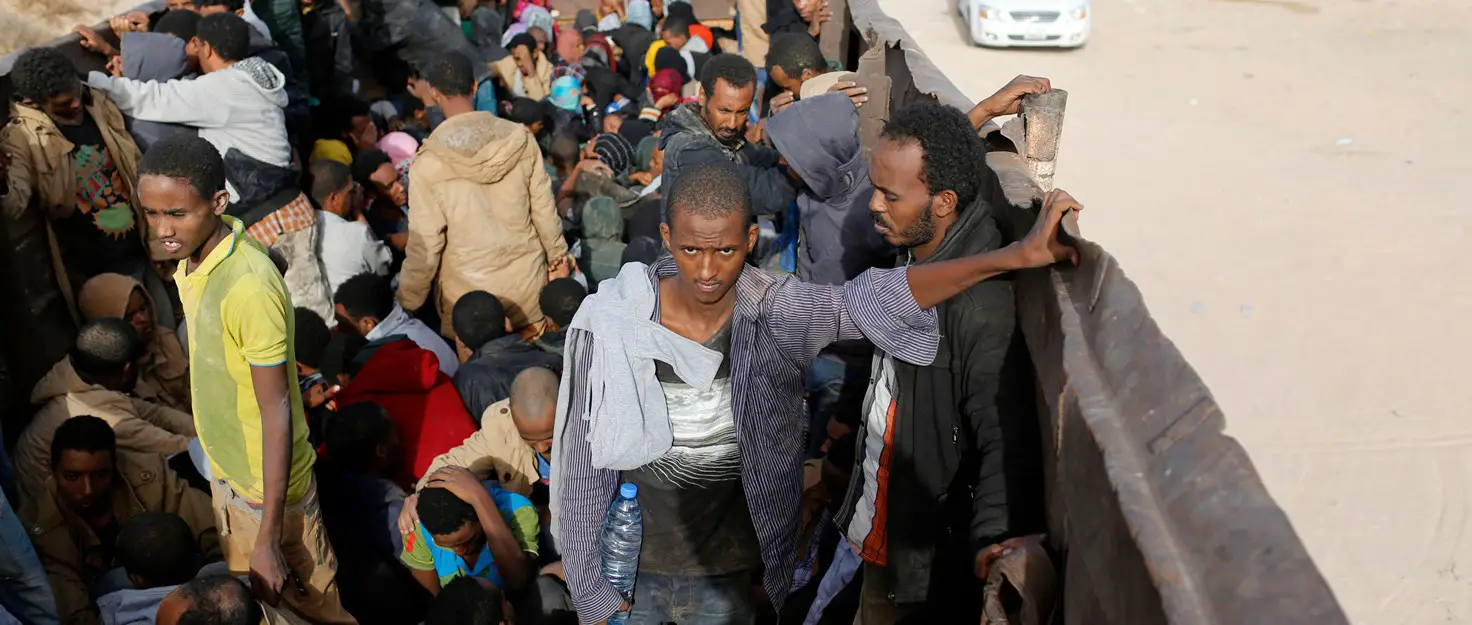A Modern Day Slave Trade Has Just Been Discovered In Libya
Tags: News

Migrants from West Africa are being bought and sold in a modern-day version of a slave market in Libya. Survivors of the trade have recently come forwards and told their story to a UN agency who is helping them to return home. Although trafficked people that were passing through Libya have reported occurrences of violence, extortion and slave labour in the past, the newfound information from the International Organization for Migration suggests that slavery has become a standard occurrence that is therefore not being concealed.
Mohammed Abdiker, IOM’s head of operation and emergencies said, “The latest reports of ‘slave markets’ for migrants can be added to a long list of outrages [in Libya]. The situation is dire. The more IOM engages inside Libya, the more we learn that it is a vale of tears for all too many migrants.” The African nation of Libya is a major gateway for refugees that are trying to make their way to boats that will get them to Europe. However, reports claim that the increase in violent chaos in the country is due to the overthrow of autocratic leader Muammar Gaddafi. The migrants with very little cash and no papers are therefore extremely vulnerable as they make their journey.
One 34 year old survivor from Senegal told his story of getting a bus across the desert that was organised by people smugglers, before the driver suddenly claimed that the middlemen had not paid their fees, which meant that the passengers were then put up for sale, despite the migrants having paid to be taken to the coasts to get on a boat. Livia Manante, an IOM officer based in Niger who helps people wanting to return home, said, “The men on the pick-up were brought to a square, or parking lot, where a kind of slave trade was happening. There were locals – he described them as Arabs – buying sub-Saharan migrants.”
Accounts of slave markets have been confirmed by migrants that have managed to escape from Libya. Manente said, “Several other migrants confirmed his story, independently describing kinds of slave markets as well as kinds of private prisons all over in Libya. IOM Italy has confirmed that this story is similar to many stories reported by migrants and collected at landing points in southern Italy, including the slave market reports. This gives more evidence that the stories reported are true, as the stories of those who managed to cross-match those who are returning back to their countries.”
The Senegalese migrant explained that he was taken to a makeshift prison where those held inside are forced to work without pay, whilst the captors regularly call their families to demand a ransom. The captors of the migrant asked for 300,000 west African francs (about £380) before they sold him to a larger jail where the demand doubled. Anyone who stayed too long without a ransom being paid would be killed, whilst others died of hunger and disease from the unsanitary conditions. Manente explained, “If the number of migrants goes down, because of death or someone is ransomed, the kidnappers just go to the market and buy one.”
The office of Giuseppe Loprete, the chief of mission at IOM Niger, has arranged for the repatriation of 1,500 people in the first three months of this year. This figure is already almost the same number as the whole of 2015. He said, “There are now more migrants coming back from Libya, so that’s also why all these stories are coming to the surface. And conditions are worsening in Libya so I think we can also expect more in the coming months.” In the past, IOM has even discovered credible reports of criminals posing as aid groups that help migrants in order to gain vulnerable people that want to return home.
The organisation is currently working to spread awareness across west Africa to explain the horrors of the journey to freedom that these migrants face. Spokesman Leonard Doyle said, “Tragically, the most credible messengers are migrants returning home with IOM help. Too often they are broken, brutalised and have been abused. Their voices carry more weight than anyone else’s.”
Image Credit: Amnesty International
I am Jess Murray, wildlife conservationist, photographer, and writer. I like to document the natural world and create awareness through my writing so that your future can be sustainable and positive. Follow my Facebook page and Instagram account to be part of the journey.
Leave Comment: